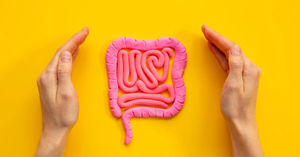Fatigue and body aches are common complaints that affect millions of individuals worldwide. They can range from mild discomfort to debilitating conditions, significantly impacting quality of life. Understanding the underlying causes and effective strategies for management can empower individuals to regain vitality and wellness.
Causes of Fatigue and Body Aches
1. Lifestyle Factors
- Lack of Sleep: Inadequate sleep disrupts the body’s recovery processes, leading to fatigue and muscle soreness.
- Poor Nutrition: A diet lacking essential nutrients can result in energy depletion and muscle weakness.
- Dehydration: Insufficient water intake affects muscle function and energy levels.
- Overexertion: Physical overexertion or prolonged stress can strain muscles and deplete energy reserves.
2. Medical Conditions
- Chronic Fatigue Syndrome (CFS): Characterized by persistent, unexplained fatigue and muscle pain.
- Fibromyalgia: A condition causing widespread musculoskeletal pain, fatigue, and sleep disturbances.
- Anemia: Low red blood cell levels reduce oxygen delivery, causing weakness and fatigue.
- Hypothyroidism: An underactive thyroid slows metabolism, leading to tiredness and aches.
- Infections: Viral infections like flu or the common cold often present with fatigue and body aches. Flu, in particular, is associated with high fever, chills, and severe muscle pain, while colds may cause milder fatigue and localized discomfort.
3. Psychological Factors
- Stress and Anxiety: Chronic stress can manifest physically, causing muscle tension and fatigue.
- Depression: Often accompanied by a lack of energy and generalized aches.
4. Medication Side Effects
- Certain medications, including statins, diuretics, and some antidepressants, may contribute to muscle aches and fatigue.
Strategies for Management and Relief
1. Lifestyle Modifications
- Prioritize Sleep: Aim for 7-9 hours of quality sleep per night. Establish a consistent sleep schedule and create a restful environment.
- Nutrition: Incorporate a balanced diet rich in fruits, vegetables, whole grains, lean proteins, and healthy fats. Include magnesium and potassium-rich foods for muscle health.
- Hydration: Drink at least 8 glasses of water daily, adjusting for activity level and climate.
- Exercise Regularly: Engage in moderate physical activity, such as walking, yoga, or swimming, to boost energy and reduce muscle tension.
2. Stress Management
- Mindfulness Practices: Techniques like meditation, deep breathing, and progressive muscle relaxation can alleviate stress-induced fatigue.
- Therapy: Cognitive-behavioral therapy (CBT) can address psychological contributors like anxiety or depression.
3. Medical Interventions
- Consult a Doctor: Persistent or severe symptoms require medical evaluation to rule out underlying conditions.
- Medications: Depending on the diagnosis, treatments may include pain relievers, antivirals for flu, or supplements such as iron for anemia.
4. Complementary Therapies
- Massage Therapy: Relieves muscle tension and promotes relaxation.
- Acupuncture: May help reduce chronic pain and improve energy levels.
- Herbal Remedies: Supplements like ashwagandha, ginseng, or turmeric may support energy and reduce inflammation.
When to Seek Immediate Medical Attention
Fatigue and body aches may signal a more serious issue if accompanied by:
- Sudden, severe pain or fatigue.
- Difficulty breathing or chest pain.
- High fever or signs of infection.
- Unexplained weight loss.
Conclusion
While occasional fatigue and body aches are a part of life, persistent symptoms warrant attention. By addressing lifestyle factors, managing stress, and seeking appropriate medical care, individuals can take proactive steps toward improved health and vitality. A holistic approach that combines self-care and professional guidance offers the best pathway to relief and rejuvenation.








Be the first one to comment on this story.